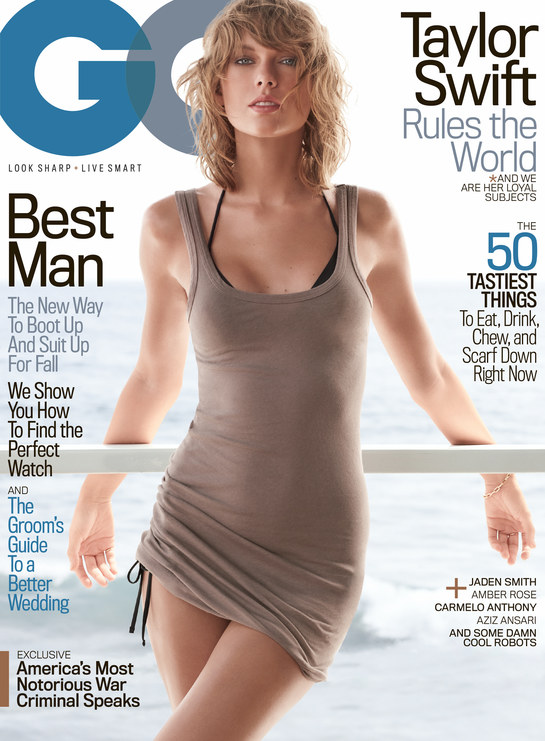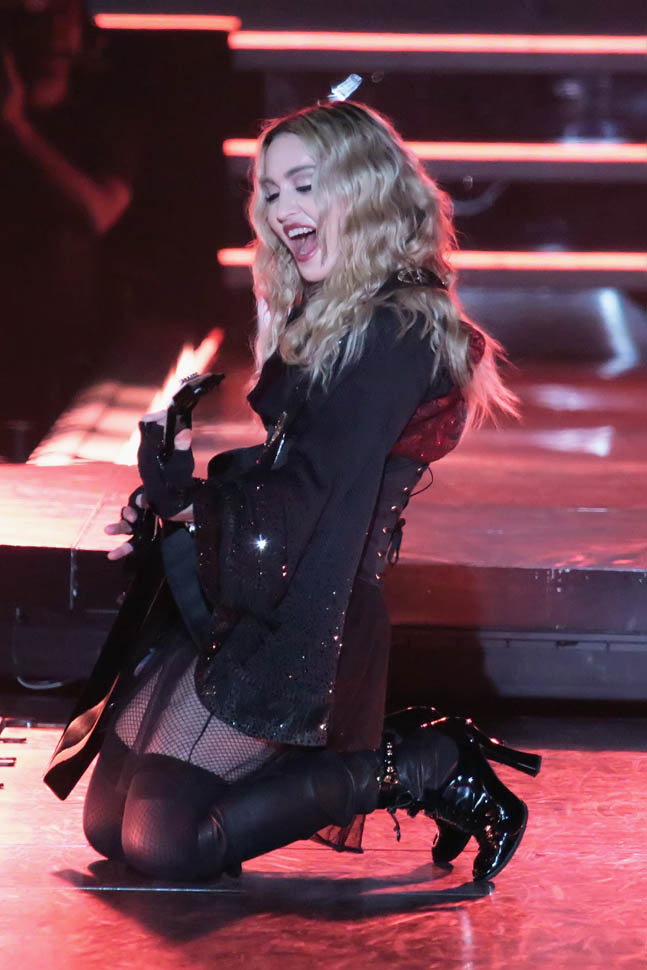Taylor Swift’s two voices



Chuck Klosterman’s cover article on Taylor Swift for GQ is now online. I don’t want to excerpt it. Because this is required reading for the School Of Celebrity Studies, on multiple levels. Not because he asked about Nicki Minaj – because he didn’t. And not because she takes a call from Justin Timberlake during the interview and stays on the phone with him for 15 minutes and at the end of the conversation we find out that HE asked HER if he could be on stage with her when she was on tour in LA. There actually isn’t anything specifically gossipy about this article. And still, it carries significant gossip value and will, probably, for much longer than we expect. This might be the definitive Taylor Swift profile so far in her career.
It helps that Chuck Klosterman is well-researched and writes well. And while the piece predominantly presents her in a positive light, there are key moments of objectivity where he challenges her and goes for the follow-up. That’s what’s missing in so many celebrity interviews, even Oprah’s celebrity interviews. Often it’s not the first question that yields the insight, it’s the second question following the response where it starts to get real. Pay attention to that when you get to the part when Chuck talks to Taylor about her lyrics and how they’re inextricably linked to her personal life and, therefore, the coverage of her personal life. He’s basically telling her, in the follow-up, that she’s shaped her artistic life in a way that not only invites but compels the listener to investigate her private life. That she’s made it an “essential” relationship between artist and audience. She doesn’t disagree. She can’t disagree. So she ends up deflecting. This is an unintended reveal. She didn’t mean for you to see that.
Later on, Chuck calls her out on her bullsh-t about Bad Blood. The song is widely believed to be about Katy Perry. And she goes around in circles to not confirm but not deny that it’s Katy Perry, refusing to take responsibility for pretty much letting everybody know that she was shooting at Katy Perry. Chuck doesn’t believe her. But in not believing her, he offers another theory: that she deliberately let us believe that Katy Perry was her target in order to make sure that we wouldn’t think it was about someone else. He’s praising her for a strategic move that she probably wouldn’t want credit for. That subversion is one of the reasons why I love this article.
Another reason why I love this article is the way Chuck spotlights Taylor’s “two voices”:
Like almost all famous people, Swift has two ways of speaking. The first is the way she talks when she’s actively shaping the interview—optimistic, animated, and seemingly rehearsed (even when that’s impossible). The second is the way she talks when she cares less about the way the words are presented and more about the message itself (chin slightly down, brow slightly furrowed, timbre slightly deeper). The first way is how she talks when she’s on television; the second is unequivocal and less animatronic. But she oscillates between the two styles fluidly, because either (a) this dissonance is less intentional than it appears or (b) she can tell I’m considerably more interested in anything delivered in the second style.
You can’t be on Taylor Swift’s level without having a face for every occasion. Beyonce, in this respect, is much more transparent about it. There’s Beyonce and then there’s Sasha Fierce. Hers is a simplistic surface representation of a much more complicated process behind the machinery, but it’s still an acknowledgment. Taylor’s brand, however, was built on all-authenticity, all the time. And here’s Chuck, granted a significant amount of time with her, hopefully to further canonise her, and instead, he tells you that, sure, Taylor’s always Taylor…there are just a lot of Taylors. Or, at least, two of them.
There’s actually nothing wrong with this. We all wear a lot of hats a lot of the time. It’s only wrong when you try to hide it. And here’s where we get into a discussion about being “calculating”. Taylor acknowledges herself that she hates the negative connotations associated with that word – because why shouldn’t success be the result of a lot of thinking, studying, and maneuvering? Why shouldn’t success come after a considerable amount of effort? This is how Taylor Swift became the biggest recording artist of right now. Not by accident but by calculation. Without a Lou Pearlman or a Simon Cowell or a Scooter Braun. The working Taylor, however, the one who “calculated” her own rise, is not the one who shows up at award shows. That’s the Taylor I have always said I wanted to see more of. What Chuck is saying here is that he really wants to meet her. He wants to meet the Taylor Swift that even Justin Timberlake has to call for an invitation. But she’s the one who has decided, not by accident, that that’s not the voice she wants you to know.
It’s a fascinating study. Click here to read the full article and please send me your thoughts!
